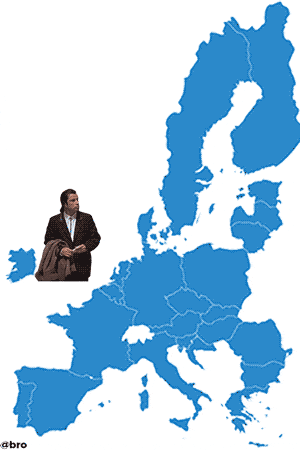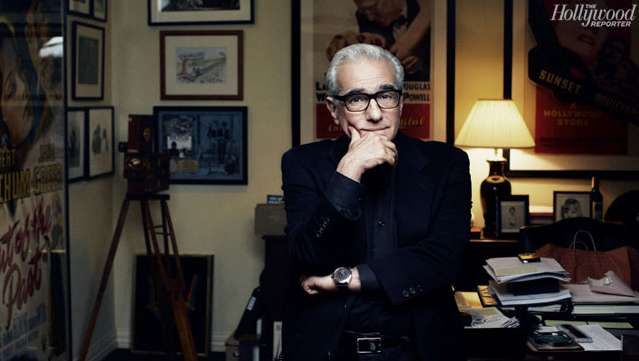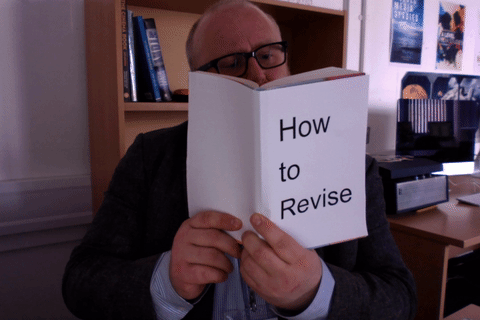This is a fascinating concept and one connected to our role as Media students. It is also something incredibly relevant to our lives, especially recently.
The night of the European Union Referendum I checked my Facebook and various online media sites and then got ready for sleep. It seemed quite clear how the vote was going to go and many of my friends on Facebook had shared how they voted so I felt pretty confident about the outcome. I went to sleep expecting to wake up still in the European Union.
 You all know what happened when we woke up that morning. I picked up my phone and clicked on the news app where it revealed that Britain had voted to leave the European Union. I was flabbergasted. I read on and checked other news sites and they all confirmed the same thing. I felt like I had woken up inside a Kafka novel. Turning on Facebook also revealed that nearly all of my friends had also been as surprised as I was at the result. Everyone, it seemed was absolutely livid.
You all know what happened when we woke up that morning. I picked up my phone and clicked on the news app where it revealed that Britain had voted to leave the European Union. I was flabbergasted. I read on and checked other news sites and they all confirmed the same thing. I felt like I had woken up inside a Kafka novel. Turning on Facebook also revealed that nearly all of my friends had also been as surprised as I was at the result. Everyone, it seemed was absolutely livid.
But how could this be? Everywhere I looked online had revealed a ‘Remain’ outcome and especially my Facebook. I had unexpectedly fallen into the Echo Chamber.
The Echo Chamber is a place where your own ideas, values and beliefs are echoed by all those around you. It is a place where likeminded individuals repeat and often amplify these views so much that opposing views are either drowned out or are never heard. The views are echoed so much and so successfully that you end up convincing yourself that yours is the only view or at least the most valid. From Wikipedia:
Participants in online communities may find their own opinions constantly echoed back to them, which reinforces their individual belief systems. This can create significant barriers to critical discourse within an online medium. Due to forming friendships and communities with like-minded people, this effect can also occur in real life. The echo chamber effect may also prevent individuals from noticing changes in language and culture involving groups other than their own. Regardless, the echo chamber effect reinforces one’s own present world view, making it seem more correct and more universally accepted than it really is.[5] Another emerging term for this echoing and homogenizing effect on the Internet within social communities is cultural tribalism.[6]
But is this a problem? Surely, it’s a good thing to be surrounded by like-minded people? Perhaps. And perhaps not.
By existing in the Echo Chamber we run the risk of not really knowing what the world is truly like. When I went to bed that night I honestly thought most of the country had the same point of view as me regarding the EU. I was wrong.
This is dangerous because it can lead to limited critical thinking on very serious topics. We need to expose ourselves to opposing ideas, values and beliefs to both understand them and if appropriate, argue against them. But we can only do that if we allow ourselves to exit the Echo Chamber. But if we do we run the risk of listening to views we disagree with, we might get offended, we might get upset. However, we also might have a better understanding of the world around us and that, my dear students, will always be a good thing. Even if we discover truths we consider ugly.
To find out more about the concept of the Echo Chamber and its place in mass media, party politics and culture then head over to David Byrne’s website to read his article.
http://davidbyrne.com/the-echo-chamber









 You all know what happened when we woke up that morning. I picked up my phone and clicked on the news app where it revealed that Britain had voted to leave the European Union. I was flabbergasted. I read on and checked other news sites and they all confirmed the same thing. I felt like I had woken up inside a
You all know what happened when we woke up that morning. I picked up my phone and clicked on the news app where it revealed that Britain had voted to leave the European Union. I was flabbergasted. I read on and checked other news sites and they all confirmed the same thing. I felt like I had woken up inside a 
